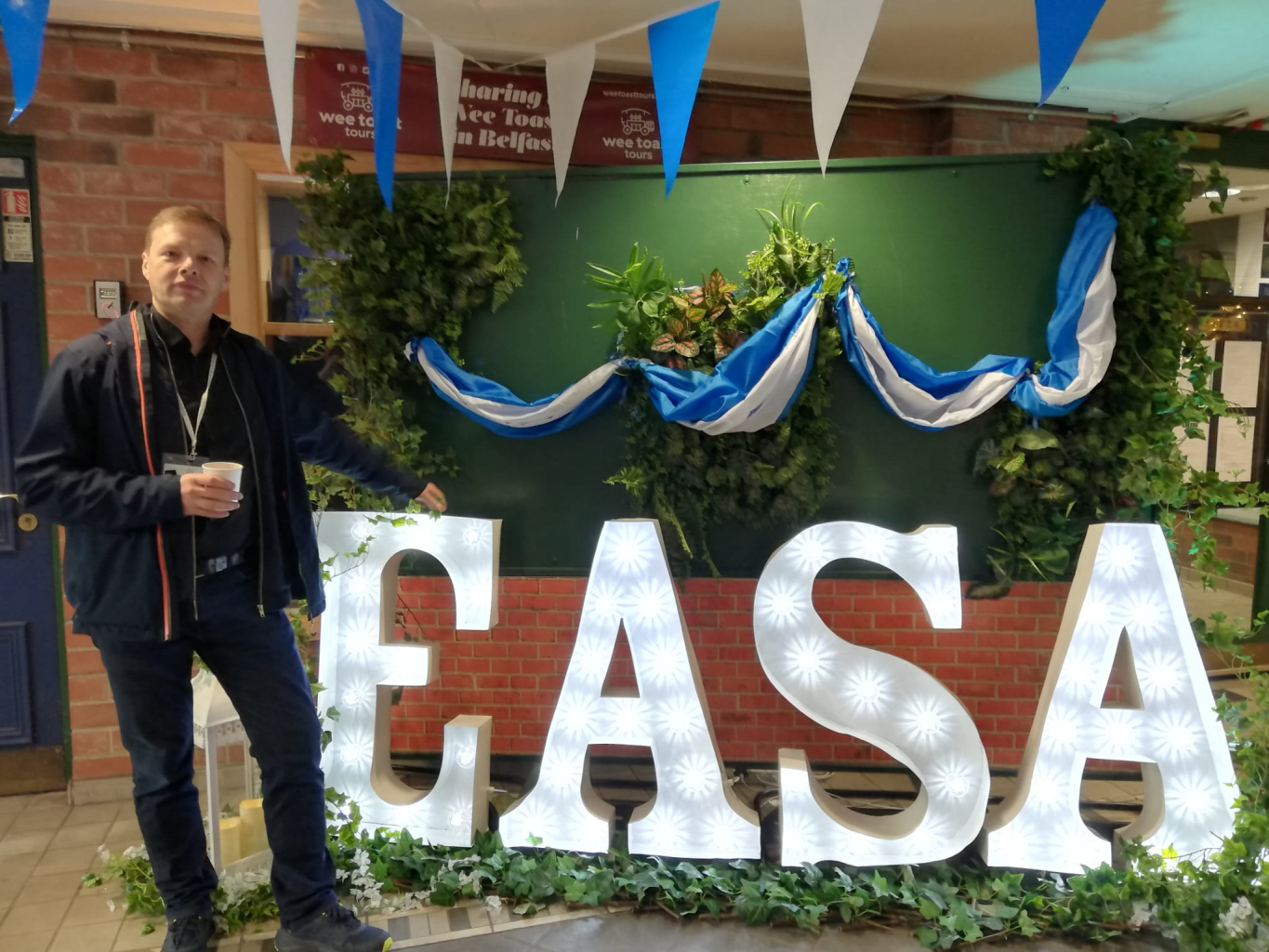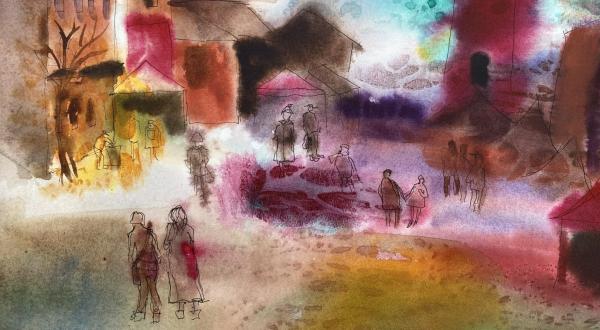Asoc. prof. Klāvs Sedlenieks uzstājas ar prezentāciju Eiropas Sociālo antropologu asociācijas konferencē
2022. gada 25.–29. jūlijā Komunikācijas fakultātes vadošais pētnieks projektā (Re)moving Ties Klāvs Sedlenieks piedalījās Eiropas Sociālo antropologu asociācijas (European Association of Social Anthropologists) rīkotajā konferencē EASA2022: Transformation, Hope and the Commons Ziemeļīrijas pilsētā Belfāstā.
K. Sedlenieks (attēlā) uzstājās ar prezentāciju Growing up in Europe: a century of theoretical self-deception. Analizējot Rietumos radušās sociālās teorijas kā etnogrāfiskus artefaktus, kurus radījusi sabiedrības intelektuālā elite, pētnieks uzsvēra, ka radniecība Eiropā ir nevis margināla vai nīkuļojoša, bet gan sabiedrības kodolu veidojoša.

- Konferences tēzes
Growing up in Europe: a century of theoretical self-deception
Klāvs Sedlenieks
Paper short abstract:
I argue that contrary to the received wisdom, kinship is not marginal or withering away in Europe but at the core of the society. Western intellectuals from 19th century to this day keep on reproducing European kinship model disguising it as part of universal social fabric.
Paper long abstract:
Western anthropologists invented the concept of kinship to describe the "other" which seemed to be integrated by kin ties. While European (broadly speaking) kinship principles rested on the assumption that birth-related ties must be re-evaluated and replaced by choice-based ones during the process of growing-up, the societies with strong "kin ties" seemed to be lingering in social childhood. I use Western social theories not as sources of intellectual wisdom but as ethnographic artefacts produced by the intellectual elites of the societies under scrutiny. Theoretical assumptions like status-contract, Gemeinschaft-Gesellschaft, some of Durkheim's, Weber's, Freud's and Parson's ideas, Granovetter's strong-weak ties, Putnam's bonding-bridging social capital) reiterate the same vision of social change whereby the past, and early social life is associated with ties produced through birth and the future is associated with choice. Similar framework (flesh vs spiritual kinship) was advocated by European Christians since early Medieval time. Many of these theories draw direct parallels with (European) assumptions of individual development: if birth-related ties are not severed, pathology of sorts results. The fear (or prediction) of constantly disappearing European family also is a part of the general narrative of growing up in Europe. I argue that we need to start looking at European kinship not via theory that was developed to describe the "rest" but as an integral part of European social fabric and consequently evaluate the stream of global theories (e.g., proposing ends of history) in a world where Europe heads towards periphery.
Saistītās ziņas
 Kas uztur ikdienas dzīvi Latgalē? RSU sociālo zinātņu pētnieki sāk pētījumu par kopienu noturību un demokrātijuPētniecība, Sociālā antropoloģija
Kas uztur ikdienas dzīvi Latgalē? RSU sociālo zinātņu pētnieki sāk pētījumu par kopienu noturību un demokrātijuPētniecība, Sociālā antropoloģija

